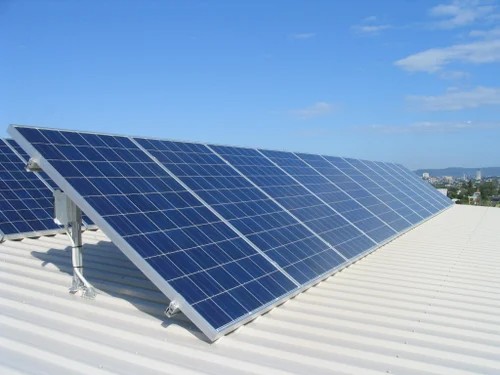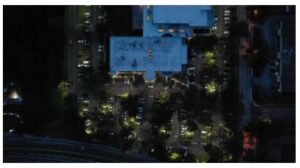A solar panel installation refers to the process of setting up a system of solar panels on your home or business premises in order to generate your own electricity from the sun.
Table of Contents
A solar panel installation refers to the process of setting up a system of solar panels on your home or business premises in order to generate your own electricity from the sun.
The first step in any solar panel installation is to carry out a site survey in order to assess the suitability of your property for generating solar power. This will involve taking into account factors such as the angle of your roof, the amount of sunlight it receives and the size of your property.
Once you have decided to go ahead with a solar panel installation, you will need to choose the type of system you want to install. There are two main types of solar panel systems available: photovoltaic (PV) and thermal.
PV systems work by converting sunlight into electricity, which can then be used to power your home or business. Thermal systems work by using the sun’s heat to generate hot water, which can be used for space heating or hot water production.
Your solar panel installation will need to be carried out by a qualified installer. They will carry out a full assessment of your property and design a bespoke system to meet your energy needs.
The solar panels will then need to be mounted on your roof, and the associated electrical equipment will need to be installed. This can be a complex process, so it is important to use a qualified and experienced installer.
Once your solar panel installation is complete, you will need to register it with your local authority. This is a legal requirement in some areas, and will ensure that you are eligible for any government incentives that are available.
Your solar panel installation will then need to be connected to the mains electricity supply. This can be done by your installer, or you may need to hire a qualified electrician to do this for you.
Once your system is up and running, you will start to generate your own electricity from the sun. This will reduce your reliance on the grid, and could save you money on your energy bills.
Solar panel installations can be a great way to generate your own renewable energy and reduce your carbon footprint. However, it is important to make sure that you use a qualified installer to carry out the work,
The Benefits of Solar Panel Installation
It’s no secret that solar energy is on the rise. With the cost of traditional energy sources continuing to increase, more and more people are looking for alternative energy options. Solar energy is one of the most popular renewable energy sources available today, and for good reason. Solar panel installation offers a number of advantages, both for homeowners and for businesses.
For homeowners, solar panel installation can save a significant amount of money on energy costs. Solar panels can be used to generate electricity, which can then be used to power your home. This can save you money on your electric bill each month, and over time, the savings can really add up. In addition, solar panel installation can increase the value of your home. Homes with solar panels tend to sell for more than homes without them, so if you’re thinking of selling your home in the future, solar panels can be a great investment.
For businesses, solar panel installation can also offer significant savings on energy costs. In addition, solar panels can help businesses to meet their sustainability goals. Many businesses are looking for ways to reduce their carbon footprint, and solar panels can be a great way to do this. Solar panels can also help to attract and retain customers, as more and more people are looking to do business with companies that are environmentally responsible.
Overall, solar panel installation offers a number of benefits for both homeowners and businesses. If you’re looking for a way to save money on your energy costs, or if you’re looking for a way to help your business meet its sustainability goals, solar panels may be the right choice for you.
The Process of Solar Panel Installation
Solar panel installation is a process that involves various steps, from choosing the right location for your panels to connecting them to the electrical grid. Here is a detailed look at the process of solar panel installation:
1. Choosing the right location for your solar panels is critical for ensuring that they will be effective. The location should be free from shade and have a clear view of the sky.
2. Once you have chosen the location, the next step is to install the mounting brackets for the solar panels. This process involves drilling holes into the roof or ground and attaching the brackets.
3. The next step is to install the solar panels themselves. This process involves connecting the panels to the mounting brackets and to the electrical grid.
4. The final step is to connect the inverter to the electrical grid. The inverter is responsible for converting the DC power from the solar panels into AC power that can be used by your home or business.
The Cost of Solar Panel Installation
If you’re considering solar panel installation, one of the first things you’ll want to know is how much it will cost. The cost of solar panel installation can vary depending on a number of factors, including the size of your home, the type of solar panels you choose, and the amount of sunlight your home receives.
The average cost of solar panel installation in the United States is $18,000. However, the cost can range from $10,000 to $40,000, depending on the factors mentioned above. The cost of solar panel installation is also affected by the state you live in. States with high electricity rates, like California, tend to have higher installation costs.
There are a number of ways to reduce the cost of solar panel installation. One way is to lease solar panels from a company like SolarCity. This can be a good option if you don’t have the upfront cash to pay for installation. Another way to reduce the cost is to install the panels yourself. This can be a challenging project, but if you’re handy and have some experience with electrical work, it’s definitely doable.
Finally, remember that the cost of solar panel installation is an investment. The initial cost may be high, but over time, the savings on your electric bill will more than make up for it. Solar panel installation is a great way to save money and help the environment.
The Future of Solar Panel Installation
Solar panels are becoming increasingly popular as a means of generating electricity, particularly in light of recent advancements in technology. Solar panel installation is a complex process, however, and there are a number of factors to consider before undertaking such a project. Key considerations for the future of solar panel installation.
1. The price of solar panels and associated equipment is falling rapidly.
The cost of solar panels has fallen by around 90% over the last decade, making them a much more affordable option for homeowners and businesses alike. The cost of installation and associated equipment has also fallen, although to a lesser extent. This trend is expected to continue in the coming years, making solar an increasingly attractive option for those looking to generate their own electricity.
2. The efficiency of solar panels is improving.
Solar panel efficiency has improved significantly in recent years and is continue to do so. The most efficient solar panels on the market today can convert around 22% of the sunlight they receive into electricity, but this figure is expected to rise to around 24% by 2020. This increase in efficiency means that more electricity can be generated from a given area of solar panels, making them more cost-effective.
3. Solar panels are becoming more durable.
Solar panels are designed to withstand the rigours of the outdoors, but they are becoming increasingly durable. The average lifespan of a solar panel is around 25 years, but some manufacturers are now offering panels with a lifespan of up to 40 years. This increase in durability means that solar panels are becoming a more viable long-term investment.
4. The availability of financing is improving.
The cost of solar panels can be a barrier to entry for some homeowners and businesses, but the availability of financing is improving. A number of banks and other financial institutions now offer loans specifically for solar panel installation, making it easier to spread the cost over a number of years. In addition, a number of leasing arrangements are also available, which can make solar panels more affordable in the short-term.





More Stories
The Ultimate Guide to 3M PPF and Professional Auto Detailing
What is Photometric Lighting Design and Why Does Your Project Need It?
Who Can You Trust When You Decide to Buy Palladium Bars Online?